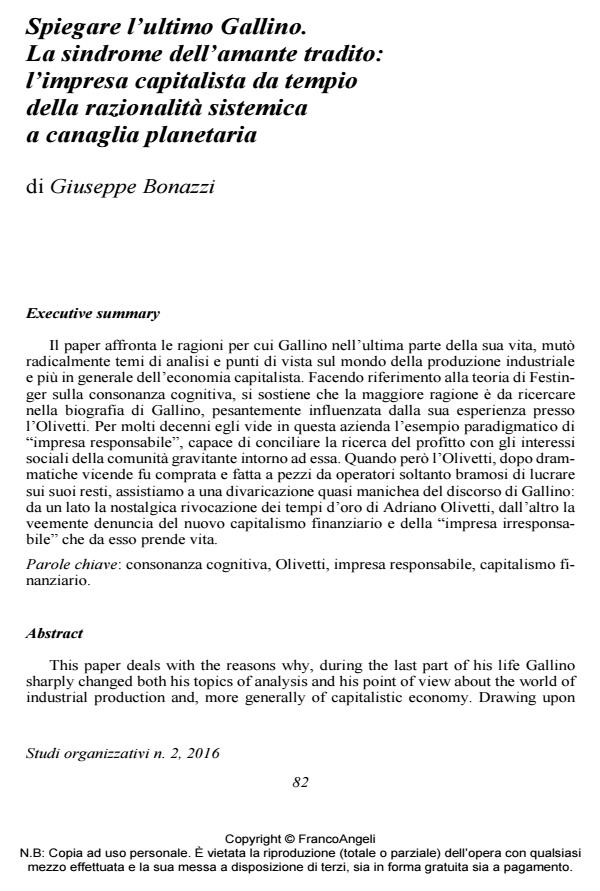Spiegare l’ultimo Gallino. La sindrome dell’amante tradito: l’impresa capitalista da tempio della razionalità sistemica a canaglia planetaria
Journal title STUDI ORGANIZZATIVI
Author/s Giuseppe Bonazzi
Publishing Year 2017 Issue 2016/2
Language Italian Pages 14 P. 82-95 File size 169 KB
DOI 10.3280/SO2016-002006
DOI is like a bar code for intellectual property: to have more infomation
click here
Below, you can see the article first page
If you want to buy this article in PDF format, you can do it, following the instructions to buy download credits

FrancoAngeli is member of Publishers International Linking Association, Inc (PILA), a not-for-profit association which run the CrossRef service enabling links to and from online scholarly content.
This paper deals with the reasons why, during the last part of his life Gallino sharply changed both his topics of analysis and his point of view about the world of industrial production and, more generally of capitalistic economy. Drawing upon Festingers’s theory of cognitive consonance, the paper argues that the main reason lies in Gallino’s biography, heavily influenced by his experience at Olivetti. For long time he looked at that firm as a paradigmatic model of "responsible company", able to reconcile search of profit and social interests of the community living arount it. However, when Olivetti, after dramatic vicissitudes, was bought out and chopped into many pieces by business men exclusively eager to make money of its remnants, we observe a manichean divarication in Gallino’s speech: on one side the nostalgic evoking of Adriano Olivetti’s golden age, on the other one a passionate charge against the new financial capitalism and the "irresponsibile company" which it generates.
Keywords: Cognitive consonance, Olivetti, responsible company, finacial capitalism
Giuseppe Bonazzi, Spiegare l’ultimo Gallino. La sindrome dell’amante tradito: l’impresa capitalista da tempio della razionalità sistemica a canaglia planetaria in "STUDI ORGANIZZATIVI " 2/2016, pp 82-95, DOI: 10.3280/SO2016-002006